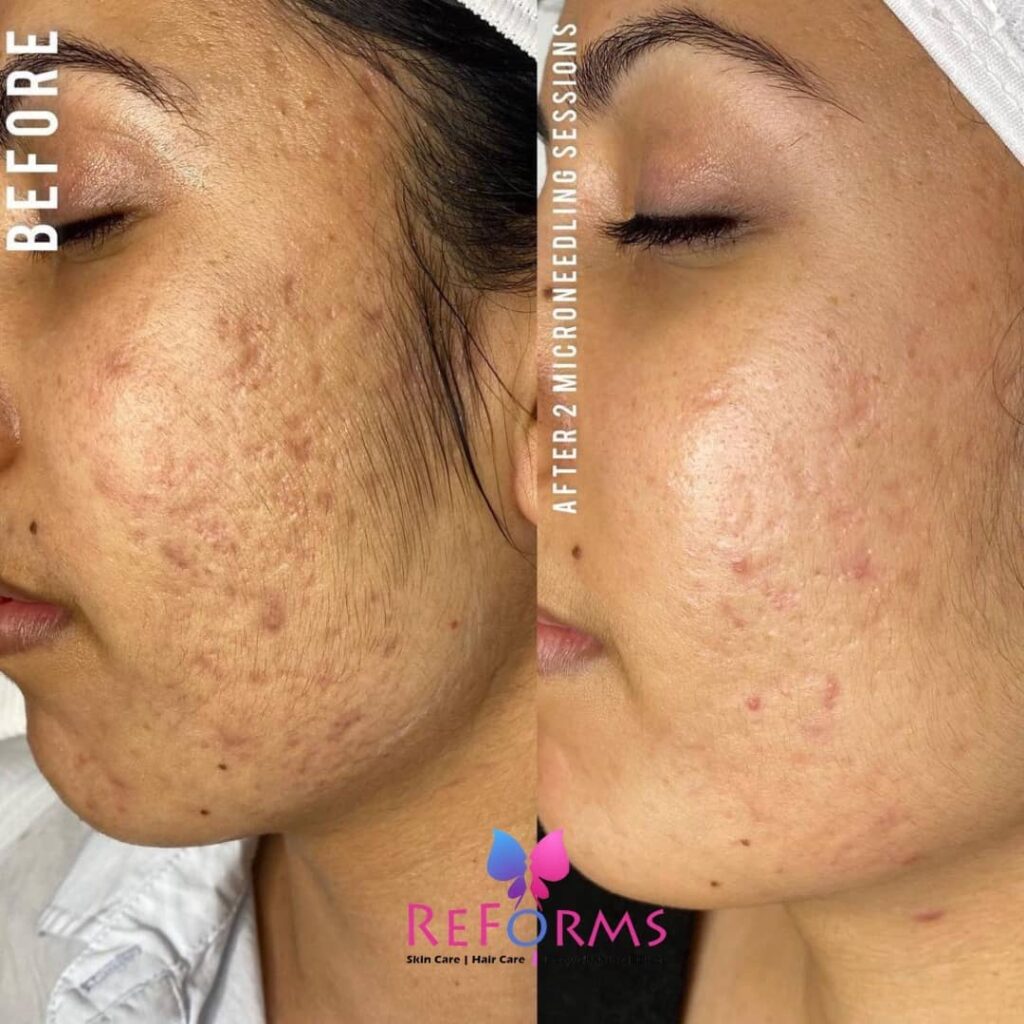Acne can leave scars, known as “acne scars,” on the face and other areas. For some people, they are an unwanted reminder of a painful and bothersome condition. However, home remedies and medical treatments can help remove acne scars and restore smoother skin.
Here are some common treatment options that can help improve the appearance of acne scars:
- Topical treatments: Over-the-counter creams or gels containing ingredients like retinoids, alpha hydroxy acids (AHAs), or silicone can be applied directly to the scars to promote skin cell turnover and improve texture.
- Chemical peels: Chemical peels involve applying a chemical solution to the skin, which exfoliates the top layer and stimulates new skin growth. This can help reduce the appearance of acne scars over time. It’s important to consult a dermatologist to determine the appropriate strength and type of peel for your skin.
- Microdermabrasion involves exfoliating the skin using tiny crystals or a diamond-tipped wand. It helps to remove the top layer of dead skin cells, revealing smoother skin underneath. Multiple sessions may be needed to see noticeable results.
- Microneedling: Microneedling involves using a device with fine needles to create controlled micro-injuries to the skin. This stimulates collagen production and encourages skin regeneration, reducing the appearance of scars. Professional micro-needling treatments are typically more effective than at-home devices.
- Laser resurfacing: Laser treatments can help improve the appearance of acne scars by removing the top layer of damaged skin. Different types of lasers, such as fractional laser or pulsed-dye laser, may be used depending on the type of scars. Laser treatments should be performed by a qualified dermatologist or aesthetician.
- Dermal fillers: Injectable fillers, such as hyaluronic acid, can temporarily fill in depressed acne scars and create a smoother skin surface. This is a non-permanent solution that requires maintenance over time.
- Surgical intervention: In severe cases, certain acne scars may require surgical procedures like punch excision, subcision, or dermal grafting. These procedures involve physically removing or redistributing scar tissue to improve the appearance of the skin.
It’s important to note that the effectiveness of each treatment can vary depending on the individual and the type of acne scars. Consulting with a dermatologist or skincare professional is recommended to determine the most suitable treatment plan for your specific situation.
Options will depend on the type and extent of scarring and include:
- chemical peels, such as salicylic acid
- retinoids and other creams
- laser treatment, microneedling, light therapy, and various other procedures
- surgery, in some cases
Natural remedies
Many people use natural remedies to help clear up acne scars. However, the science behind them is unclear. Some may cause further irritation or other problems so people should use them with caution.
Home remedies that people have traditionally used to treat acne scars include:
- black seed oil, which may help even out skin pigmentation
- rosehip oil, which has helped reduce discolouration in postsurgical scars
- honey, which may help Trusted Source wound healing and reduce future scarring
- aloe vera, which, combined with manuka honey, may promote Trusted Source scar-free healing of wounds


